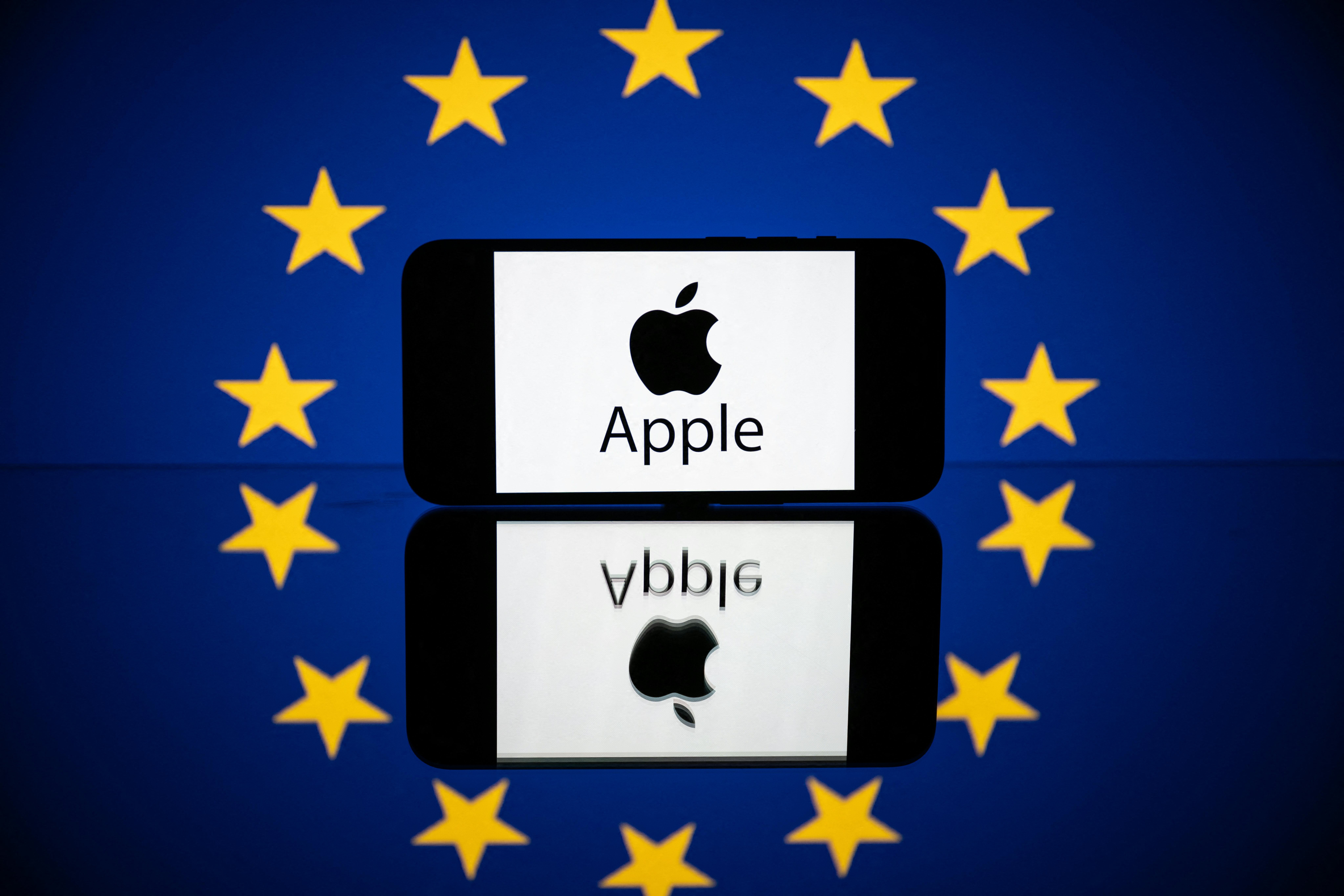Apple fined $2 billion for ‘abusing’ its dominance on the iPhone
iOS users were not told about other music subscription services, regulators say

Apple has been fined $2 billion for “abusing” its power over the iPhone, according to European regulators.
The company used its control over its ecosystem to keep users from being told about potentially better deals on music subscription services, the European Union said.
“For a decade, Apple abused its dominant position in the market for the distribution of music streaming apps through the App Store,” said Margrethe Vestager, executive vice-president in charge of competition policy.
“They did so by restricting developers from informing consumers about alternative, cheaper music services available outside of the Apple ecosystem. This is illegal under EU antitrust rules, so today we have fined Apple over €1.8 billion.”
The huge fine is the first of its kind for Apple. The Commission said the large number reflected the “duration and gravity of the infringement”, as well as the size of Apple’s revenues and valuation.
Apple said the decision had been made “despite the Commission’s failure to uncover any credible evidence of consumer harm, and ignores the realities of a market that is thriving, competitive, and growing fast”.
It also suggested that the decision would unfairly help Spotify, which it said was the “biggest beneficiary” of the decision.
“Today, Spotify has a 56 percent share of Europe’s music streaming market — more than double their closest competitor’s — and pays Apple nothing for the services that have helped make them one of the most recognizable brands in the world,” Apple said in a statement. “A large part of their success is due to the App Store, along with all the tools and technology that Spotify uses to build, update, and share their app with Apple users around the world.”
The EU launched its investigation in 2020, and began after Spotify filed a complaint against Apple. The streaming service said it was unfair that it was forced to pay 30 per cent of subscription revenues to Apple, and that it was not able to properly market to its users.
Last year, the EU said in an early update that Apple’s behaviour was unfair, and that it could result in both higher prices and less choice for customers. But it declined to give its final judgement until now.
The new fine comes as Apple prepares to change its App Store practices in Europe, in response to the EU’s incoming Digital Markets Act. That will force Apple to allow third-party app stores, for instance, as well as allowing developers to use alternative payment methods.
Spotify has rejected those plans, however, saying that Apple had made the alternatives to its App Store so undesirable that nobody would use them. It called the new rules an “alternative that offers no alternative at all”, pointing to the high charges that Apple will continue to charge developers even if they distribute apps outside of the App Store.
“Apple is nothing if not consistent,” Spotify wrote in response. “While they have behaved badly for years, this takes the level of arrogance to an entirely new place. Under the false pretense of compliance and concessions, they put forward a new plan that is a complete and total farce.”
Apple noted the timing, and said that the fine was “not grounded in existing competition law” but instead “an effort by the Commission to enforce the DMA before the DMA becomes law”.
“So while we respect the European Commission, the facts simply don’t support this decision,” Apple said. “And as a result, Apple will appeal.”
Join our commenting forum
Join thought-provoking conversations, follow other Independent readers and see their replies
Comments
Bookmark popover
Removed from bookmarks